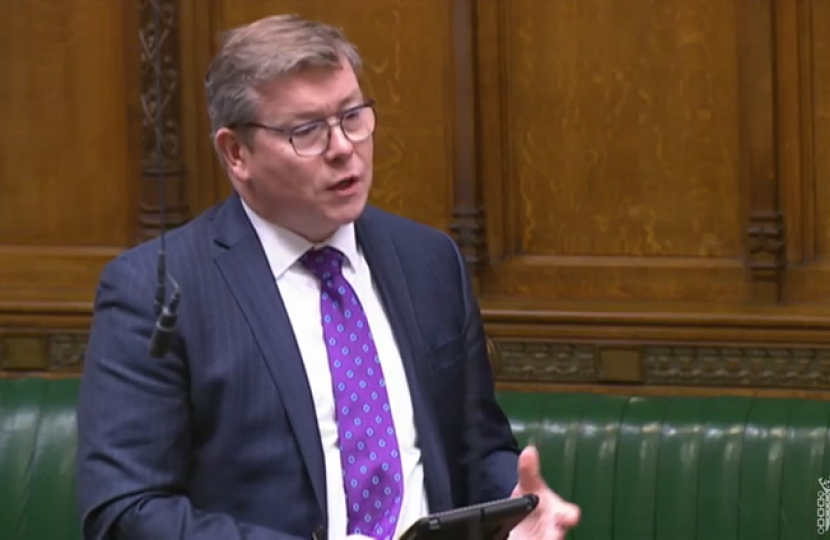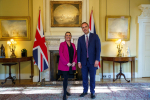
Peter Gibson MP has today (28.02.23) called on the Government to go further to bring down the cost of retrofitting homes.
26% of the north’s carbon emissions come from our homes, moreover we have a higher percentage of older properties than the rest of the country: 24% of all homes in the north were built before 1919, and 41% were built before 1944. These older homes pose serious issues when it comes to energy efficiency.
Mr Gibson has previously raised this issue in the House of Commons on a number of occasions, having held a debate on Energy Efficiency of Homes in the North in July of 2022, where he highlighted the work of North Star Housing towards retrofitting their properties.
Speaking in Department for Energy Security and Net Zero questions in the House of Commons, Mr Gibson highlighted the benefits that can be achieved through retrofitting older homes. Mr Gibson said, “Retrofitting older homes can reduce carbon emissions, cut energy bills, make homes warmer, reduce reliance on gas, and bring new green jobs to the North, but the costs associated with retrofitting are currently prohibitive to achieving this on a large scale.” He went on to ask Grant Shapps MP, Secretary of State for Energy Security and Net Zero, what more he could do to “bring down the cost of retrofitting homes?”
In his response to Mr Gibson, Mr Shapps outlined the work the Government is already doing in this area, highlighting that we are approaching having retrofitted half of homes that need it as well as the £4 billion extension of the Energy Company Obligation (ECO) along with a further £1 billion for ECO Plus to ensure that all homes that need it can be retrofitted.
Speaking about retrofitting, Mr Gibson said “These older homes are largely beautiful, characterful properties that provide us with the backdrop to much of our northern constituencies, but they are in desperate need of retrofitting. I commend the Government for the work they are already doing in this area, but I would press them to do more to bring down the costs. Retrofitting is a win-win-win-win situation, cutting carbon emissions and fuel bills, tackling health issues, reducing our reliance on gas imports and creating new jobs in the north.”

